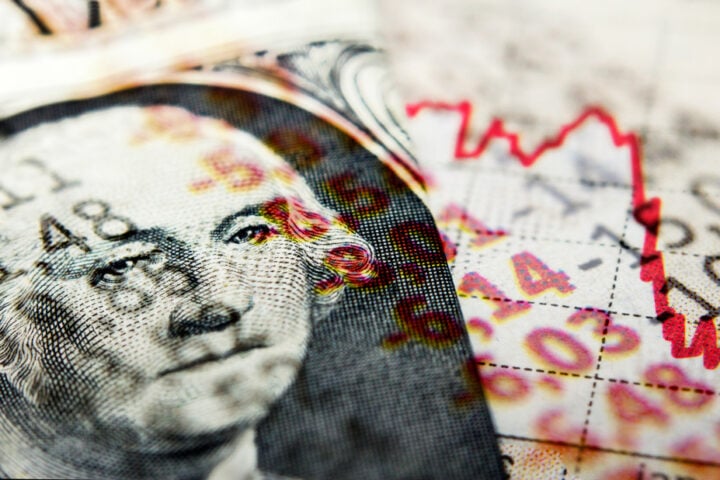Japan’s yen tumbled to a three-month low against the U.S. dollar on Monday, highlighting the rising uncertainty in Japanese politics following a recent election setback for the ruling coalition. The currency’s struggles come at a time of significant strength for the dollar, which is on track for its largest monthly gain since April 2022. As investors watch for clarity on Japan’s political landscape and the Bank of Japan’s (BoJ) policy direction, the yen’s performance underscores the broader impacts of global economic and political shifts on currency markets.
Yen Falters Amid Political Uncertainty in Japan
Japan’s ruling coalition, led by the Liberal Democratic Party (LDP) and junior partner Komeito, fell short of a majority in the lower house election, capturing only 215 seats—18 shy of the majority threshold. The election result has heightened concerns over political stability in Japan, raising questions about the coalition’s ability to push through key economic policies. Traders now anticipate a period of coalition-building that could delay budget negotiations heading into December. “What is also going to be very important for markets is whether or not there is a coalition in place relatively quickly,” noted Jane Foley, head of FX strategy at Rabobank in London, stressing the market’s need for clarity.
In response, the yen weakened against the dollar, reaching a high of 153.88 before stabilizing slightly. George Vessey, lead FX strategist at Convera in London, explained that the coalition’s loss is amplifying the yen’s bearish outlook, as political uncertainties weigh heavily on the BoJ’s policy stance. The central bank, meeting this week, now faces additional pressure to maintain ultra-low rates to prevent further market volatility.
Bank of Japan’s Dilemma and Intervention Speculation
Amid mounting pressures, analysts from BNY suggest that a continued decline could push the dollar-yen exchange rate to a critical level of 160, a threshold that might prompt intervention from Japan’s finance ministry. The yen’s weakness is exacerbated by rising global yields and the popularity of yen-funded carry trades, which have been encouraged by the lower-risk environment. However, Japan’s political gridlock may force the BoJ to exercise caution in any policy adjustments, particularly as investors anticipate potential “revolving-door” leadership similar to the brief tenure of former Prime Minister Shigeru Ishiba.
Dollar Surges with Strong U.S. Economic Data
While Japan grapples with political instability, the U.S. dollar is enjoying a remarkable rally, poised to end October with a 3.6% rise in the U.S. Dollar Index (DXY), its sharpest increase in over two years. This rise is driven by strong U.S. economic indicators, supported by expectations of a Republican victory in the upcoming presidential election. Many market analysts believe that a potential Trump presidency, along with Republican control of Congress, could lead to policies delaying rate cuts, fueling further dollar strength.
The robust dollar performance has also contributed to a broad-based weakening of other currencies, including the euro, which saw a nearly 3% decline for the month. The euro’s troubles could deepen if the U.S. enacts a global baseline tariff, prompting retaliatory measures from other nations. “The diverging macro picture has led some investors to rethink their positioning,” explained Vessey, referring to shifting expectations around global interest rate paths.
Global Markets Watch Key Data Releases This Week
Investors worldwide are keeping a close eye on economic data due this week, which could further influence currency markets. Key releases include the U.S. October employment report, expected to be affected by recent labor strikes and natural disasters in the Southeast, as well as inflation readings from Europe and Australia. China’s purchasing managers’ index (PMI) will also provide insight into the country’s manufacturing health, while U.S. GDP data will offer a snapshot of broader economic trends.
As traders evaluate these upcoming reports, the yen remains under scrutiny. Analysts caution that without swift action from Japan’s leadership, both the yen and investor confidence could see further declines.
The yen’s recent downturn, driven by political instability and an uncertain monetary future, highlights the currency’s vulnerability amid global economic shifts. As Japan works to form a stable coalition government, the Bank of Japan faces significant pressure to maintain stability in its policy approach. Meanwhile, the dollar continues to surge, buoyed by U.S. economic resilience and political expectations. In a world of diverging economic fortunes, the yen’s fate will likely depend on Japan’s political stability and the BoJ’s capacity to adapt to evolving global financial conditions.







